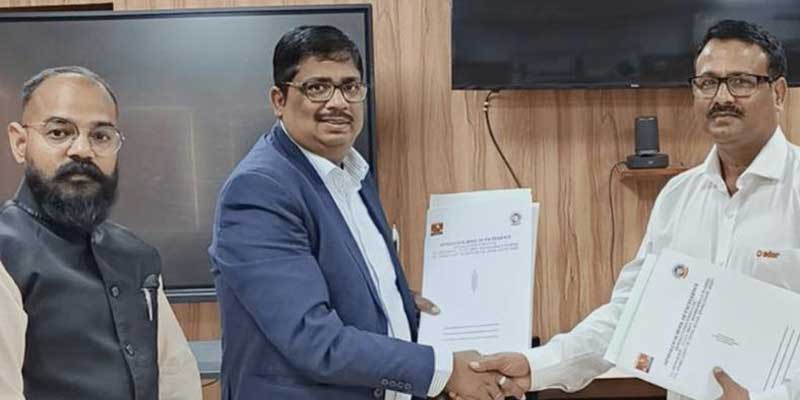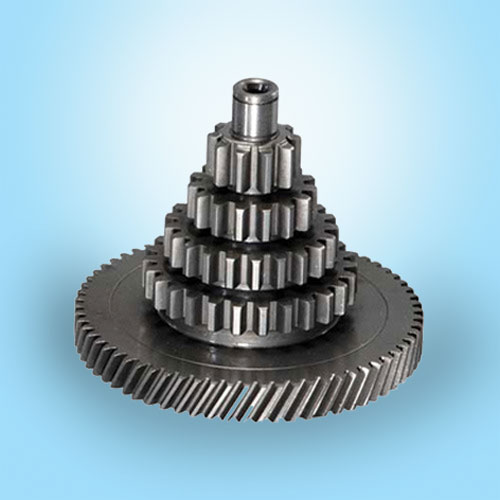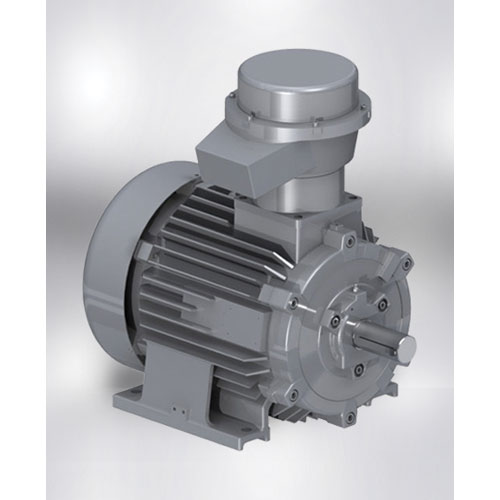Schedule a Call Back
Quo Vadis Industry 4.0?
 Technical Articles
Technical Articles- Oct 01,16

When Industry 4.0 took off in Germany it rapidly made it to the headlines. But where does it stand in reality? Nikolaus Fecht and Dr Andreas Thoss present an interesting insight on the subject.
Theory describes Industry 4.0 or the fourth industrial revolution as full integration of production and communication technologies. It creates a so called “smart factory”, where people, machines and processes are well connected by internet technologies for the purpose of increased cost efficiency, higher process stability and greater flexibility. After all, it should save time and money.
How does that look in real life? On the one hand there is an approach to scrutinize whole factories and to re-think and optimise all processes from the first customer request to after-sales services. On the other hand many SMEs offer solutions for separate business processes. With special software tools they can severely increase the efficiency. Beside consequent digitisation of processes there is a second trend coming up: While product lines are unified the single product is increasingly personalised. This leads to smaller lot sizes, down to one. The new tools help to remain profitably, even then.
It’s a management issue
Friedhelm Loh, the sole proprietor of the Friedhelm Loh Group with more than 11.000 employers, recently spoke at the innteract conference in Chemnitz on his experiences with the introduction of industry 4.0 in the Rittal factory for industrial control cabinets. The product portfolio had been adjusted, until 2015 they reduced the number of products from 465 to 110. Five product lines were conflated into one. In future customers will define their purchase using an online configurator. The data from this configurator tool go directly into SAP and NC programs. From initial material supply up to final distribution all logistic processes are fully automated. The whole process from “customer to customer” is digitally organised.
The cost savings in the process steps are between 15% (purchasing and sales department, after-sales service) and 50% (manufacturing). Loh’s conclusion: “Only an integrated end-to-end solution which is consistently based on configuration and data, results in a continuous process.”
Within the TRUMPF group a new production unit Sheet Metal Processing has been set up as a fully connected factory. It is comparable to a conventional sheet metal job shop, which is completely converted into a smart factory. They use and develop software tools from TRUMPF’s proprietary solution portfolio TruConnect and their digital business platform AXOOM. For a further optimisation of the production process they introduced a powerful MES (Manufacturing Execution System)-system from the TruConnect tool box. As the heart of the production planning it evaluates the machine conditions and allows a paper free production with digital accompanying documents. Also, the topic intra logistics will be optimised towards Industry 4.0 to automatise error-prone routine tasks. Furthermore, the production unit is the pilot unit for the introduction of a fine-planning system. Within this development project the fine-planning of sequential production steps and the necessary resources is an important focus, in particular with arbitrarily defined and variable conditions. This is crucial for the economic manufacturing of lot size one.
Solutions for small and medium sized companies
Not every company can or wants to implement Industry 4.0 in form of an entire new factory. Today there are many solutions for separate processes, which serve the idea of higher efficiency by connectivity and specialised software.
It starts with indirect processes, that are all the steps in a job that take place before or after the actual manufacturing of the part, regardless of the batch size. As batch sizes shrink due to increasing individualisation, these indirect processes are no longer in proportion to the actual productive work (i.e., production itself). A study conducted by Fraunhofer-IPA (S-Tec) in collaboration with TRUMPF found out that the cost for material planning may shrink by up to 75% in a smart factory surrounding.
Friedhelm Loh described an online product configurator as a core feature of his new Rittal factory. Dominik Weibel and Marco Wüst, two Swiss entrepreneurs, have implemented a similar tool for a sheet metal processing job shop. Within their company eMDe Blechfabrik AG they developed an online system based on Trumpfs online quotation calculator WebCalculate. Here customers can upload drawings and set material parameters and they receive immediately a full quotation. After placing an order customers can track the order throughout all processing steps including delivery. eMDe saves a lot of time with small lot sizes and retains an opportunity for price negotiations with larger orders. More such tools (or actually apps) can be expected soon when Trumpfs spin-off Axoom becomes fully operational. Axoom is set to develop solutions for continuous order processing in production operations.
Smart software may also save money in manufacturing processes. For example Bystronic has developed special software for planning a sheet metal cutting job. The online service ByOptimizer calculates an optimised cutting plan for the laser machine based on more than 300 parameters. Parts are grouped so closely on the metal sheet that the gaps (i.e., raw material offcuts) are reduced to a minimum. The online service connects seamlessly with existing software, it needs just a few clicks to upload data and online service takes care of everything else. Cutting paths of the laser are reduced by half when a common cut allows for one cut instead of two. Bystronic promises material savings of up to 10% depending on contour shape and lot size.
It becomes more challenging if you have a new process and you want to find process parameters for cutting or drilling processes. It needs a well-experienced operator and a number of trials to find optimal laser process parameters for a new material. Researchers from the Fraunhofer Institute for Laser Technology ILT have collected simulation know-How for such processes for many years. Adequate simulations usually require a workstation and hours of calculation time, but now the experts developed a simplified simulation tool for tablet use. In this app the user can play around with beam parameters such waist diameter and see directly how the processing result such as the conicity of a drilling would be affected. This may reduce make-ready times considerably.
The simulation app from the Fraunhofer ILT allows playing around with process parameters with immediate return of the process changes in a neighbouring window. Another example of smart production will be shown by the Schuler AG at EuroBLECH trade fair. With their concept of a “Smart Press Shop” they want to show how networking solutions in forming technology can increase not only process reliability, but also cost-effectiveness in production. For this purpose the entire system is simulated and optimised, including all press stages and automation components. The systems provide data measured by sensors installed at numerous points, for example to monitor the press force. This data also allows for a continuous operation control and allows for condition-based maintenance.
Alliances & initiatives
Industry 4.0 is a key issue for German politics and so there are plenty of projects and events arranged in a national and international frame. Particularly engaged are the German Federal Ministry of Economics and Technology (BMWi) and the Federal Ministry of Education and Research (BMBF). Together with industry organisations and companies they have pooled activities and offerings for small and medium sized companies within the “Plattform Industrie 4.0”. On their website as an example, you may find more than 200 projects applying Industry 4.0 on an interactive map of Germany. The Plattform has formed five working groups for collaborative efforts on questions such as standards and norms, research and innovation, security or education and training.
If you think man disappears completely from the shop floor you may consider a look at the so called “Innovationsallianz 3Dsensation”. Founded within the founding initiative “Zwanzig20 – Partnerschaft für Innovation” of the BMBF companies and research institutions meet here to think about the future man machine interaction. They assume that man is not becoming fully redundant but he will change his role when dealing with machines. It’s about making men machine interaction more intuitive, safer and more efficient.
With an effort of totally 100 Million Euros the partner of the consortium want to work on projects in the fields of manufacturing, mobility, health care and security. Of particular focus are 3D technologies that help machines to capture and interpret complex scenarios rapidly.
Many more millions are currently invested in research on Industry 4.0. For example in Aachen you may find a lot of different projects: Within the university excellence cluster “Integrative Produktionstechnik für Hochlohnländer” at the RWTH people research on the technological and economic implementation of Industrie 4.0. Or you may test your concepts at the Demonstration Factory, a reference factory for Industry 4.0 where empirical research and advanced training can be conducted in a realistic production environment. It will be part of the Smart Logistics Cluster, a new building on the RWTH Aachen campus. Another cluster building just opened its doors: The cluster photonics develops concepts such as “Digital Photonic Production”. This project alone has an annual funding commitment of up 2 million for 15 years.
Risks and side effects?
Putting more services on the net and into the cloud brings a number of new risks on the table. So far viruses and theft of data is more probably on office computers but since at least the Stuxnet worm it is apparent that machine controls are not secure from fraud.
On a recent meeting of the Association of German Engineers VDI the association’s director Ralph Appel said that the number of cyber-attacks on industrial plants or infrastructures of larger and smaller companies is much larger than the news tell us since many companies do not recognize them. Or they do not talk about it since they are afraid of losing customer’s trust. Accordingly, safety concepts are in high demand. One place where they are developed is the Fraunhofer Institute for Secure Information Technology SIT in Darmstadt. There they built a Trusted Core Network (TCN), which tests the integrity of network knots to ensure that there are no foreign invaders. New participants such as robots, computers or machines can be verified continuously and can be connected to the network.
Conclusions
Industry 4.0 is much more than a hype, many of it’s ideas are implemented already. Solutions for separate processes are in widespread use but the conversion of full complex process chains is still rare.
The conversion of indirect processes promises quick wins, in particular if you try to drive profits for small lot sizes.
German politics supports a large number of networking projects for industry and research institutions, funding seems to be available in many fields. There are some risks growing with Industry 4.0, in particular with regard to cyber crime.
Detlef Zühlke, head of the technology initiative SmartFactoryKL e.V., and leader of the group Innovative Factory Systems (IFS) at the German Research Centre for Artificial Intelligence, DFKI, said recently at a large Industry 4.0 conference in Anaheim, CA, USA, that it will some more two or three years until the first systems will be running. But then it will become a global competition: “It’s a worldwide movement. Those who are too late with it will finally be the first to die on the market.”
Authors: Dipl.-Ing Nikolaus Fecht and Dr Andreas Thoss, THOSS Media GmbH, Berlin, Germany.
Article courtesy: EuroBLECH – International Sheet Metal Working Technology Exhibition – the world’s No. 1 event for innovations in sheet metal working (October 25-26, 2016, Hannover, Germany).
Related Stories

Hindalco partners with Ador Welding to enhance employees’ welding skills
Ador Welding Ltd and Hindalco School of Excellence have launched two key initiatives - the Training of Trainers (TOT) program and the Evaluation and Certification of Trainees in the welding trade.
Read more
Indore’s RR CAT plans AI-driven innovations in welding
RRCAT’s proposal, which aligns with the government's AI (artificial intelligence) vision in Amrit Kaal, has already secured approval at the Department of Atomic Energy (DAE) level.
Read more
SKF India dedicates a song to mechanics
SKF India - a manufacturer of bearings, seals, lubrication and lubrication systems – has released "Heroes of the Road”, a heartfelt song dedicated to the unsung heroes of the automotive industry..
Read moreRelated Products

Cluster Gears
Trishla
Gear Industries is engaged in manufacture and supply of a wide range of cluster
gears.

Servo Drives, Fully Digital
Bristol
Industrial Electronics offers optimum quality, fully digital servo drives.












